2024-02-21
De Brouwer, O. & Tojerow, I.
Empirical Economics (2024)
Abstract. Over the last two decades, social security reforms in several European countries have turned early retirement routes for older workers increasingly difficult. The size of the effects of these reforms on labour supply and social security transfers, and how these effects interact with workers’ characteristics have yet to be measured. This article sheds light on this issue by exploring the consequences of postponing access to an old-age unemployment programme—from age 58 to 60—in Belgium. The programme provides laid-off workers with a combination of unemployment benefits and a monthly supplement paid by the employer until the full retirement age. Exploiting register data on the universe of workers and using a difference-in-difference identification strategy, the authors find that UCS eligibility negatively affects employment participation but also mitigates older workers’ participation in other social security programmes.
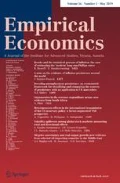
2024-02-08
Licata, C. and Méon, P.-G.
Journal of Economic & Behavior Organisation, Vol. 219 (2024).
Abstract. Using two surveys, we study how respondents process visual cues to identify the political orientation (left- vs. right-wing) of members of the French National Assembly (referred to as “deputies”), based on official photographs only. We first confirm that respondents outperform random guesses. Second, we find that their categorizations correlate with observable characteristics (tie color, facial hair) and subjective assessments of deputies’ personality traits (attractiveness, competence, trustworthiness). Third, the objective visual cues that respondents use are consistent with the actual characteristics of left- and right-wing deputies, and respondents mistakenly react to subjective personality traits that differ little across the two groups of deputies. Fourth, left- and right-wing respondents use the same cues in the same way. However, attractiveness stands out because respondents categorize attractive deputies as corresponding to their own orientation. Fifth, the magnitude of the marginal impact of a characteristic on the probability of a respondent categorizing a photograph as left- or right-wing increases strictly with the representativeness of that characteristic. Finally, we find evidence that some characteristics correlate with categorization errors. Findings 1, 2, 4, and the finding that respondents use cues in the correct way are consistent with both Bayesian behavior and the representativeness heuristic. Findings 5, 6, and the finding that respondents react to subjective cues that do not differ across groups are at odds with Bayesian inference but consistent with the representativeness heuristic. Finding that attractiveness trumps partisan stereotypes suggests the existence a partisan halo effect.
https://www.sciencedirect.com/science/article/pii/S0167268124000209
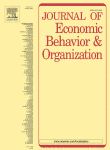
2023-08-31
Hayo, B. and Méon P.-G.
Journal of Macroeconomics, Vol. 78 (2023).
Abstract. An experiment using a representative survey of the German population shows that letting respondents report a number rather than asking them to choose from a list of predefined ranges lowers the response rate for both perceived past and expected inflation and decreases (increases) reported past (expected) inflation. Income, education, gender, objective and subjective knowledge about monetary policy, and political affiliation affect the effect’s size but not its sign. East and West German respondents who were 15 or older when the Berlin Wall fell have reactions different from those who were younger at that time, which supports the ‘impressionable years’ hypothesis based on different inflation experiences.
https://www.sciencedirect.com/science/article/abs/pii/S0164070423000587
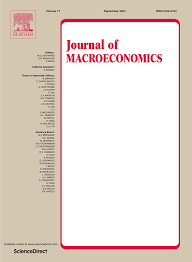
2023-08-28
Charpin, A., Szafarz, A. and Tojerow, I.
Economics Letters, 111285 (2023).
Abstract. “Old boys’ club” ownership structures can hamper the empowerment of female talent. We use African data to show that the CEOs of firms with female shareholders are more likely to be women, regardless of the size of female shareholdings.
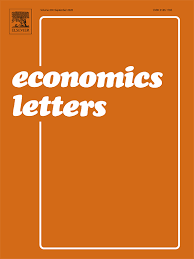
2023-08-28
Lannoo, A., Duchêne, C., Godin, I. and Tojerow, I.
Brussels Studies, n°183 (2023).
Abstract. La généralisation de l’éducation à la vie relationnelle, affective et sexuelle (EVRAS) est un projet mis en place depuis de nombreuses années en RBC francophone. Malgré la mobilisation de politiques, de nombreux acteurs et d’établissements scolaires, plus de dix ans ont été nécessaires après son intégration dans les missions de l’enseignement pour que l’EVRAS devienne obligatoire à la rentrée 2023, sous une forme minimale. L’absence d’un réel parcours EVRAS tout au long de la scolarité est problématique et participe aux inégalités sociales de santé déjà fortement présentes à Bruxelles. Cette étude participe à l’élan récemment impulsé par la COCOF et a pour objectif de contribuer à la définition de futures politiques publiques ambitieuses à ce sujet : elle propose trois scénarios de généralisation de l’EVRAS dans l’enseignement obligatoire bruxellois francophone, accompagné chacun d’une modélisation budgétaire.

2023-03-15
Fays, V., Mahy, B. and Rycx, F.
Labour, vol. 37, pp. 1-24 (2023).
Abstract. This article examines the impact of a firm’s position in Global Value Chains (GVCs) on wages according to workers’ origin. Based on a unique linked employer–employee dataset regarding the Belgian manufacturing industry covering the 2002–2010 timespan, our estimates show that firms that are more upstream in the value chain pay on average significantly higher wages. However, the wage premium associated with upstreamness is also found to be unequally shared among workers. Unconditional quantile regressions and decomposition methods suggest that high-wage workers born in developed countries benefit the most from being employed higher up the value chain, while workers born in developing countries appear to be unfairly rewarded.
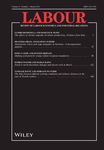
2022-12-18
Jacobs, V., Rycx, F. and Volral, M.
De Economist (Netherlands Economic Review), 170, pp. 459-501 (2022).
Abstract. This paper analyses the wage effects of educational mismatch by workers’ origin using a sizeable, detailed matched employer–employee dataset for Belgium. Relying on a fine-grained approach to measuring educational mismatch, the results show that over-educated workers, regardless of their origin, suffer a wage penalty compared to their well-matched former classmates. However, the magnitude of this wage penalty is found to vary considerably depending on workers’ origin. In addition, the estimates show that origin-based differences in over-education wage penalties significantly depend on both demographics (workers’ region of birth, education, gender and tenure) and employer characteristics (firm size and collective bargaining). To our knowledge, the role played by these different moderating variables has been either little or not explored in this context before.
https://link.springer.com/article/10.1007/s10645-022-09413-9
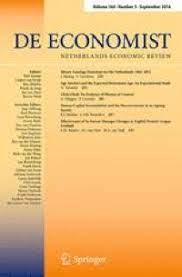
2022-12-18
Jacobs, V., Pineda-Hernandez, K., Rycx, F. and Volral, M.
LIDAM Discussion Paper IRES (2022/3).
Abstract. We provide first evidence of the impact of over-education, among natives and immigrants,
on firm-level productivity and wages. We use Belgian linked panel data and rely on the
methodology from Hellerstein et al. (1999) to estimate ORU (over-, required, and undereducation) equations aggregated at the firm level. Our results show that the over-education
wage premium is higher for natives than for immigrants. However, since the differential
in productivity gains associated with over-education between natives and immigrants
outweighs the corresponding wage premium differential, we conclude – based on OLS and
dynamic GMM-SYS estimates – that over-educated native workers are in fact underpaid to
a greater extent than their over-educated immigrant counterparts. This conclusion is refined
by sensitivity analyses, when testing the role of immigrants’ background (e.g. region of
birth, immigrant generation, age at arrival in the host country, tenure).
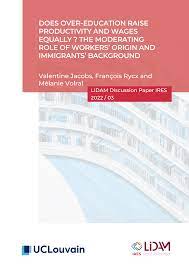
2022-11-21
Sous la dir. de Bayenet, B., Fontaine, M. et Husden, Y.
Pyramides, n°35/36 (2021).
Plus d’infos : La politique hospitalière en Belgique (anthemis.be)

2022-10-13
Pireda-Hernandez, K., Rycx, F., Volral, M.
British Journal of Industrial Relations, Vol. 60, Issue 4, pp. 895-928 (2022).
Although many studies point to the significant influence of collective bargaining (CB) institutions on earnings inequalities, evidence on how these institutions shape poverty rates across developed economies remains surprisingly scarce. This paper explicitly addresses the relationship between CB systems and working-age poverty rates before and after taxes and transfers in 24 developed countries over the period 1990–2015. Our results show that countries with a more centralized CB system, a more extended bargaining coverage rate and/or a higher trade union density display significantly lower poverty rates. However, these results only hold in a post-tax benefit scenario. Controlling for country and time fixed effects and a wide range of covariates, our estimates indeed suggest that the poverty-reducing effect of CB institutions stems from the political strength of trade unions in promoting public social spending rather than from any direct effect on earnings inequalities. Sensitivity tests for endogeneity and overlapping samples support this conclusion.
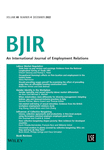
2022-09-13
Du Caju, P., Périlleux, G., Rycx, F., Tojerow, I.
Review of Economics of the Household, 21, pp. 291-333 (2022).
This paper investigates the potentially non-linear relation between households’ indebtedness and their consumption. To do so, we use panel data from the two waves of the Belgian Household Finance and Consumption Survey. Unlike previous studies, we find a negative effect of households’ indebtedness on their consumption, even in the absence of any negative shock on their assets. Our findings suggest that, without such a shock, it is the day-to-day sustainability of the debt, rather than its overall sustainability, that leads households to reduce their consumption. The effect thus seems to occur through precautionary motives. To explore potential non-linearities in this effect, we perform a threshold analysis, whose results suggest that households should not have a debt-service-to-income ratio greater than 30% as this leads to a substantial reduction in their consumption. The effect appears to be robust to various specifications, including the inclusion of other European countries, to result from a trade-off between housing and consumption, and to be more prevalent among fragile households.

2022-09-13
Mahy, B., Rycx, F., Vermeylen, G., Volral, M.
The World Economy, Vol. 45, Issue 7, pp. 2222-2250 (2022).
This paper is the first to estimate the impact of a direct measurement of firm-level upstreamness (i.e. the steps—weighted distance—before the production of a firm meets either domestic or foreign final demand) on productivity and wage costs. To this end, we merged detailed Belgian linked panel data, covering all years from 2002 to 2010, with a unique dataset containing accurate information on the yearly position of each firm in the value chain. We rely on the methodological framework pioneered by Hellerstein et al. (Journal of Labor Economics, 1999, 17, 409) to estimate panel data models at the firm level. Controlling for key worker and firm characteristics, our GMM-SYS and FE-IV estimates show that firms positioned more upstream (i.e. further away from the final consumer) create more value. Our results also indicate that the impact of firm-level upstreamness is stronger on productivity than on wage costs, which implies that profitability is fostered. More precisely, in line with Belgium’s strong labour market institutions, our estimates suggest that the productivity gains associated with upstreamness are shared almost equally between wages and profits.
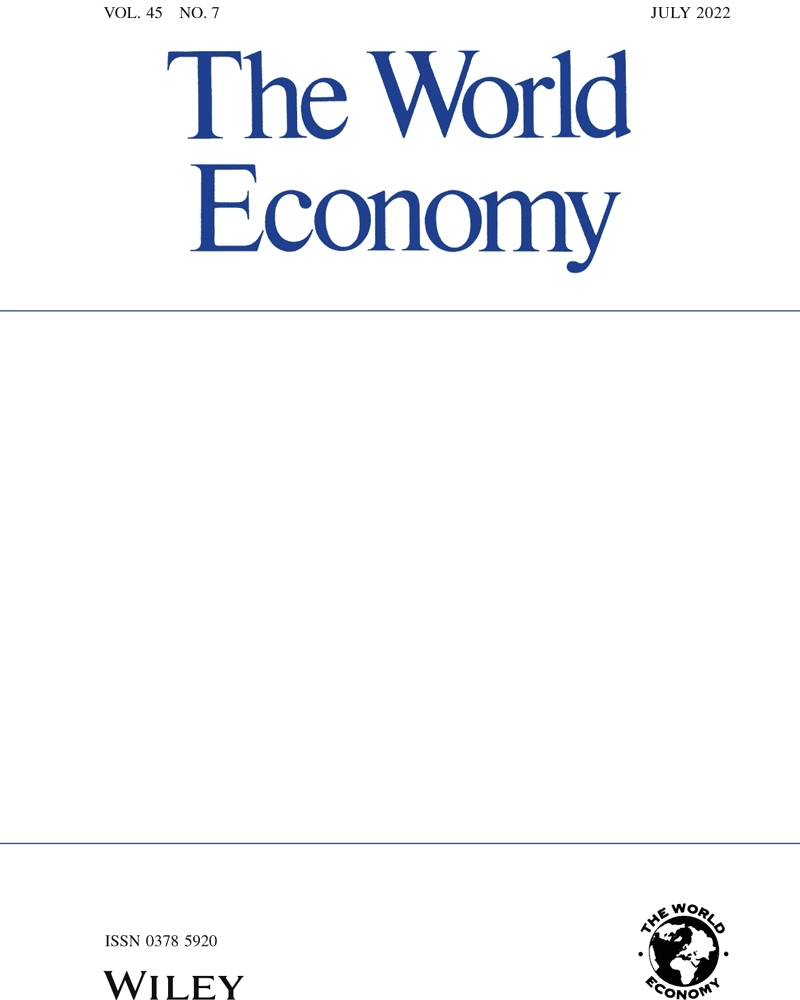
2022-09-13
Cultrera, L., Mahy, B., Rycx, F., Vermeylen, G.
Education Economics, Vol. 30, Issue 6, pp. 561-573 (2022).
This paper is among the first to investigate the impact of over-education and over-skilling on workers’ wages using a unique pan-European database covering twenty-eight countries for the year 2014, namely the CEDEFOP’s European Skills and Jobs (ESJ) survey. Overall, the results suggest the existence of a wage penalty associated with over-education. When the educational and the skills mismatches are interacted with each other in order to distinguish apparent over-education from genuine over-education, the results highlight that the workers with the highest wage penalty are those who are both over-educated and over-skilled.
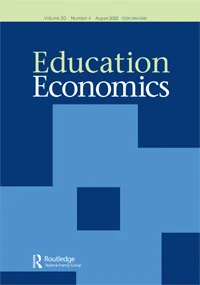
2022-09-13
Gagliani, N., Grinza,E., Rycx, F.
Industrial, a Journal of Economy and Society Relations, Vol. 62, Issue 1, pp. 3-33 (2022).
Using rich longitudinal matched employer-employee data on Belgian firms, we explore the impact of workers’ tenure on firm productivity. To do so, we estimate production functions augmented with firm-level measures of tenure. We deal with the endogeneity of standard inputs and tenure, which arises from unobserved firm heterogeneity and reverse causality, by applying a modified version of Ackerberg et al.’s (2015) control function method, which explicitly removes firm fixed effects. Consistently with recent theoretical predictions, our analyses point to positive, but decreasing, returns to tenure. We also find that the impact differs widely across several firm dimensions. Tenure is particularly beneficial for productivity in contexts characterized by a certain degree of routineness and low job complexity. Along the same lines, our findings indicate that tenure exerts stronger positive impacts in industrial and capital-intensive firms, as well as in firms less reliant on ICT-intensive and knowledge-intensive processes.
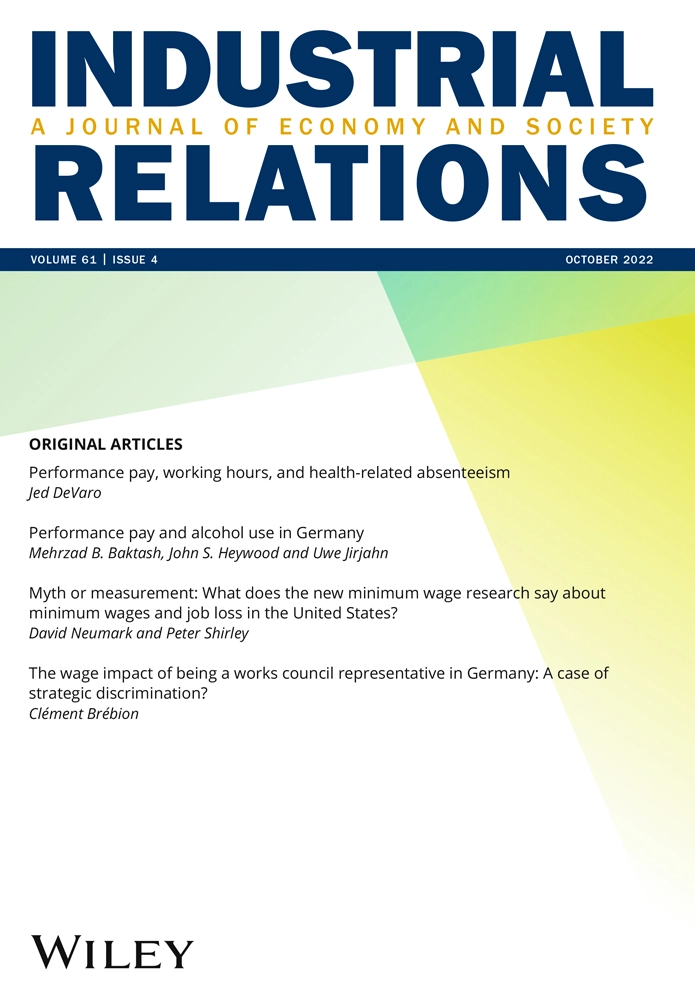
2021-12-24
Fernandez Guerrico, S.
Journal of Health Economics, Vol. 80, 102538 (2021).

2021-11-29
Fontenay, S., Murphy, T., & Tojerow, I.
Applied Economics Letters, Vol. 30, Issue 4, pp. 488-495 (2021).

2021-11-24
Piton, C., & Rycx, F.
De Economist, 169, pp. 319–365 (2021).
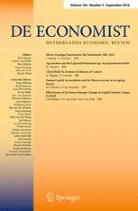
2021-11-24
Kouevi-Gath, B., & Méon, P-G.
Public Choice, 186, pp. 413–446 (2021).

2021-11-24
François, A., & Méon, P-G.
European Journal of Political Economy, 67, 101962 (2021).

2021-11-24
Lacroix, J., Méon, P-G., & Sekkat, K.
Journal of Comparative Economics, 49, Issue 2, pp. 340-357 (2021).

2021-11-24
Giani, M., & Méon, P-G.

2021-11-24
Méon, P-G., & Sekkat, K.
Journal of Institutional Economics, First View, pp. 1-15 (2021).
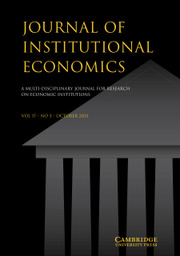
2021-11-24
Jacobs, V., Mahy, B., Rycx, F., & Volral, M.
Applied Economics, 53, Issue 1, pp. 61-78 (2021).
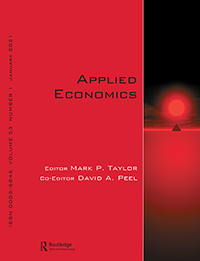
2021-07-13
Gagliardi, N., Mahy, B., & Rycx, F.
British Journal of Industrial Relations, 59 (1), pp. 52-83 (2021).
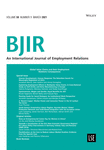
2021-07-13
Fays, V., Mahy, B., Rycx, F., & Volral, M.
Applied Economics, 53 (13), pp. 1551-1571 (2021).

2020-07-14
Bertrand, O., Fontaine, M., & Hausmann, T.
Dynamiques régionales, 10, pp. 59-80 (2021).

2020-07-13
Fays, V., Jacobs, V., Mahy, B., Rycx, F., & Volral, M.
Dynamiques régionales, 9, pp. 57-72 (2020).
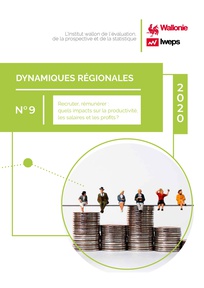
2020-07-13
Mahy, B., Rycx, F., & Vermeylen, G.
Dynamiques régionales, 9, pp. 37-56 (2020).

2020-07-13
Mahy, B., Rycx, F., & Volral, M.
Dynamiques régionales, 9, pp. 73-85 (2020).

2020-07-13
Giuliano, R., Mahy, B., & Rycx, F.
Dynamiques régionales, 9, pp. 17-36 (2020).

2020-07-13
Mahy, B., Rycx, F., Vermeylen, G., & Volral, M.
Reflets et Perspectives de la vie économique, LVIII(2-3), pp. 95-104 (2020).
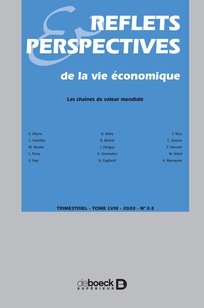
2020-07-13
Fays, V., Mahy, B., & Rycx, F.
Reflets et Perspectives de la vie économique, LVIII(2-3), 105-114 (2020).

2020-07-13
Dhyne, E., Mahy, B., & Rycx, F.
Reflets et Perspectives de la vie économique, LVIII(2-3), pp. 115-134 (2020).

2020-07-13
Garnero, A., Rycx, F., & Terraz, I.
Industrial Relations: A Journal of Economy and Society, 58 (4), pp. 936-972 (2020).
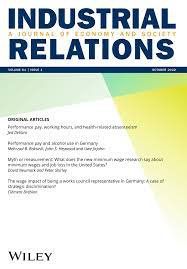
2020-07-13
Grinza, E., Kampelmann, S., & Rycx, F.
Journal of Economic Inequality, 18 (2), pp. 181-211 (2020).
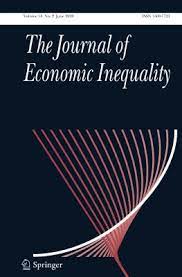
2020-07-13
Grinza, E., & Rycx, F.
Industrial Relations: A Journal of Economy and Society, 59 (1), pp. 150-194 (2020).

2020-04-25
Kampelmann, S., Mahy, B., Rycx, F., & Vermeylen, G.
Labour, 34/1 , pp. 80-112 (2020).

2020-01-13
Dhyne, E., Mahy, B., & Rycx, F.
Reflets et Perspectives de la vie économique, double special issue, LVII(2-3): pp. 5-141 (2020).

2019-07-13
Gagliardi, N., Mahy, B., & Rycx, F.
Reflets et Perspectives de la vie économique, LVII(4), pp. 55-62 (2019).

2019-07-13
Piton,C., & Rycx, F.
IZA Journal of Labor Policy, 9 (2), pp. 1-32 (2019).

2019-04-01
Cornille, D., Rycx, F., & Tojerow, I.
Journal of Financial Stability, Elsevier, 41, pp. 1-13 (2019).
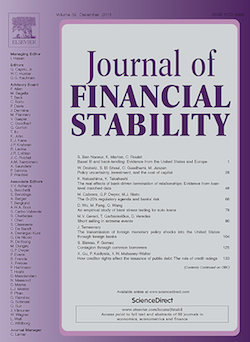
2019-01-01
Fradkin, A., Panier, F., & Tojerow, I.
Journal of Labor Economics, 37(1), pp. 35-100 (2019).
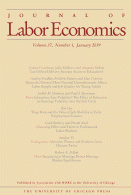
2018-12-06
Méon, P-G., & Tojerow, I.
Journal of Comparative Economics, Elsevier, pp. 1-19 (2018).
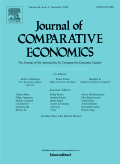
2018-03-01
Rycx, François; Kampelmann, Stephen; Saks, Yves & Tojerow, Ilan
Regional Studies, 52(12), pp. 1695-1707 (2018)..
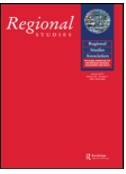
2018-03-01
De Brouwer, O., & Tojerow, I.
Revue de Sécurité Sociale, 1, pp. 5-63 (2018).

2018-01-01
Avanzo, S.
The Social Question in the Global World, Cambridge Scholars Publishing – Enabudged Editor, pp. 208-233 (2018).

2018-01-01
Rycx, F., Kampelmann, S., Saks, Y., & Tojerow, I.
IZA Journal of Labor Economics, 7(1), pp. 1-37 (2018).
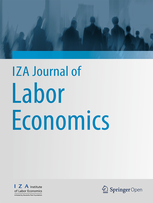
2018-01-01
Rennoir, M., & Tojerow, I.
Dynamiques Régionales, 6, pp. 97-117 (2018).

2017-07-01
Bayenet, B.
in : Actes du Colloque des 8 et 9 juin 2017 “Quelle nouvelle politique industrielle pour la Région de Bruxelles-Capitale”, Conseil Economique et Social, Région de Bruxelles-Capitale (2017).

2017-02-01
Bayenet, B., Brunet, S., Caruso, F. and O’Dorchai, S.
Rapport sur l’Economie Wallonne, pp. 271-284 (2017).

2017-02-01
Bayenet, B., Caruso, F., Louis, V., Scourneau, V. and Verschueren, F.
Rapport sur l’Economie Wallonne, pp. 63-139 (2017).

2017-02-01
Bayenet, B. and Brunet, S. (eds)
En collaboration avec l’IWEPS, la Cellule d’analyse économique et stratégique de la Sogepa et la DG06 (Région Wallonne), 313 p. (2017).

2017-01-01
Rycx, F., Giuliano, R., Kampelmann, S. and Mahy, B.
British Journal of Industrial Relations, 55(2), pp. 421-449 (2017).
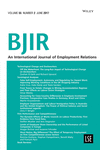
2017-01-01
Rycx, F., Giuliano, R., Mahy, B. and Vermeylen, G.
Applied Economics, 49(6), pp. 587-605 (2017).
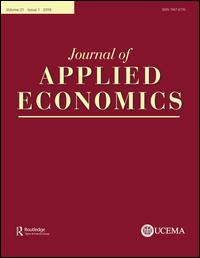
2017-01-01
Avanzo, S. and Hamzaoui, M.
Les Politiques Sociales, 1-2 (2017).
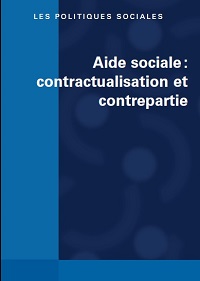
2017-01-01
Bayenet, B., Bourgeois, M. and Darte, D.
Larcier, 993 p., (2017).
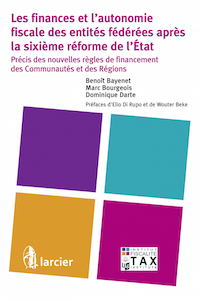
2016-10-01
Giuliano, R. Mahy, B., Rycx, F. and Vermeylen, G.
Reflets et Perspectives de la vie économique, 55(4), pp. 93-104 (2016).
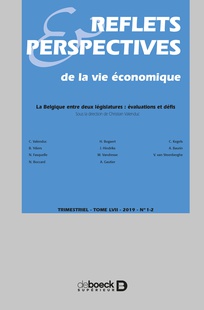
2016-10-01
Mahy, B. Rycx, F. and Volral, M.
Reflets et Perspectives de la vie économique, 55(4), pp. 71-80 (2016).
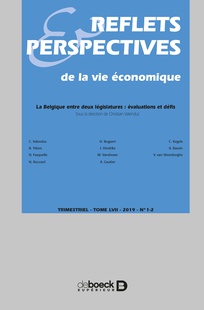
2016-10-01
Giuliano, R. Kampelmann, S., Mahy, B. and Rycx, F.
Reflets et Perspectives de la vie économique, 55(4), pp. 57-69 (2016).
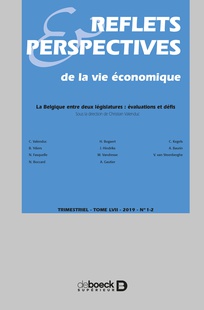
2016-10-01
Garnero, A., Kampelmann, S. and Rycx, F.
Reflets et Perspectives de la vie économique, 55(4), pp. 81-91 (2016).

2016-02-01
Bayenet, B., Brunet, S. and Caruso, F.
Rapport sur l’Economie Wallonne, pp. 251-259 (2016).
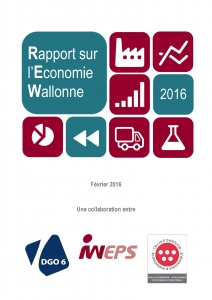
2016-02-01
Bayenet, B. and Brunet, S. (eds)
En collaboration avec l’IWEPS, la Cellule d’analyse économique et stratégique de la Sogepa et la DG06 (Région Wallonne), 260 p. (2016).

2016-01-01
Avanzo, S.
In : Hamzaoui, M., Léonard, D. and Artois, P., Vieillissement et société : Catégorisation, Travail, Politiques Sociales, Louvain-La-Neuve : Academia, pp. 133-146 (2016).

2016-01-01
Avanzo, S.
In : Hamzaoui, M., Artois, P. and Mélon, L., Le secteur non marchand au coeur du changement, Charleroi : Couleur-Livres (2016).

2016-01-01
Rycx, F., Mahy, B. and Vandenberghe, V.
Perspectives de la vie économique, Vol. LV(4), pp. 5-114 (2016).
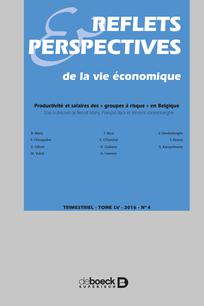
2016-01-01
Rycx, F. Konings, J. and Vandenberghe, V. (eds)
International Journal of Manpower, special issue, Vol.37(2), pp. 197-392 (2016).

2016-01-01
Rycx, F. Garnero, A., Mahy, B. and Guiliano, R.
International Journal of Manpower, 37(2), pp. 303-322 (2016).
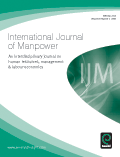
2016-01-01
Rycx, F. and Kampelmann, S.
Iza Journal of Development and Migration, 5(15), 24 p. (2016).
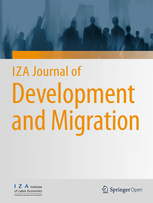
2016-01-01
Rycx, F., Mahy, B. and Voiral, M.
International Journal of Manpower, 37(2), pp. 197-209 (2016).
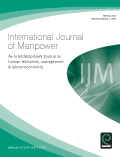
2015-10-01
Avioutskii, V., Roth, F. and Tensaout, M.
Brussels Economic Review, 58(3) (2015).
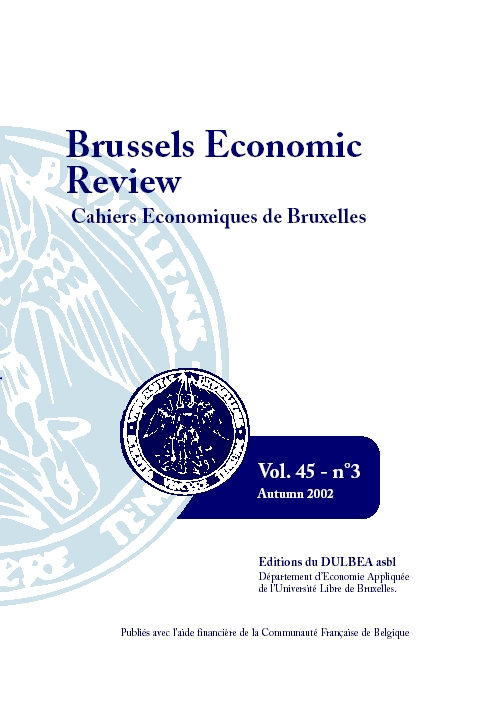
2015-06-01
Bayenet, B. and Husson,J.-F.
“La dotation globale de fonctionnement en question : éléments d’évaluation et perspectives”, Association des Communautés urbaines et métropoles de France, Association des maires des grandes villes de France et Association des petites villes de France, pp. 114-129 (2015).
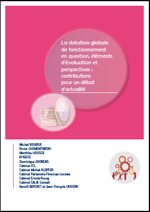
2015-01-01
Avanzo, S.
Acciones e Investigaciones Sociales, 35, pp. 115-132 (2015).

2015-01-01
Rycx, F., Garnero, A. and Kampelmann, S.
British Journal of Industrial Relations, 53(4), pp. 760-788 (2015).
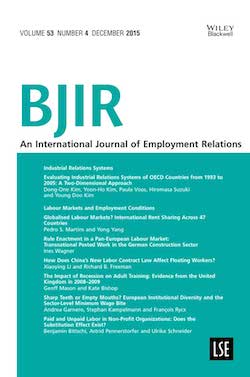
2015-01-01
Rycx, F. Garnero, A. and Kampelmann, S.
European Journal of Industrial Relations, 21(2), pp. 115-130 (2015).
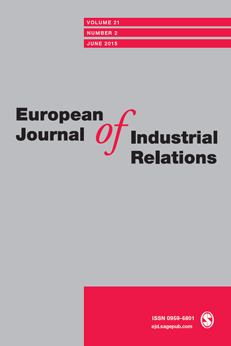
2015-01-01
Rycx, F. Mahy, B. and Vermeylen, G.
De Economist, 163(2), pp. 233-262 (2015).
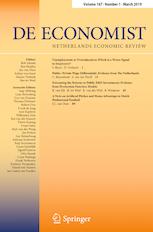
2014-09-01
Allegretto, S. A. and Tojerow, I.
Monthly Labor Review (2014).

2014-07-01
Rycx, F., Garnero, A. and Kampelmann, S.
Industrial and Labor Relations Review, 67(3), pp. 926-954 (2014).
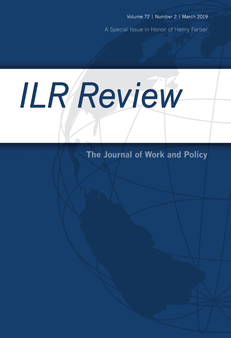
2014-02-01
Rycx, F. and Bernhard, M.
Review of International Economics, 22(1), pp. 73-85 (2014).
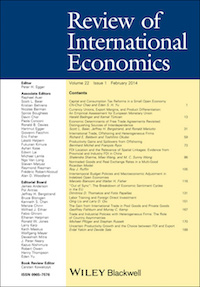
2014-01-01
Rusinek, M. and Tojerow, I.
Regional Studies, 48(2), pp. 301-317 (2014).
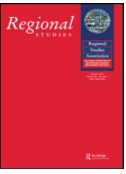
2014-01-01
Rycx, F., Garnero, A. and Kampelmann, S.
Industrial Relations : A Journal of Industrial Relations, 53(3), pp. 430-477 (2014).
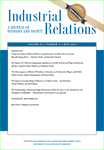
2014-01-01
Mahy, B., Rycx, F. and Vermeylen G.
Dynamiques régionales, 2014/1, pp. 17-26 (2014).
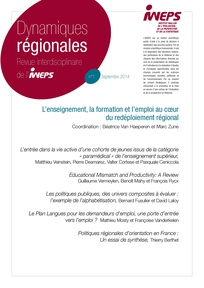
2013-07-01
Kampelmann, S. and Rycx, F.
Brussels Economic Review, 56(2) (2013).
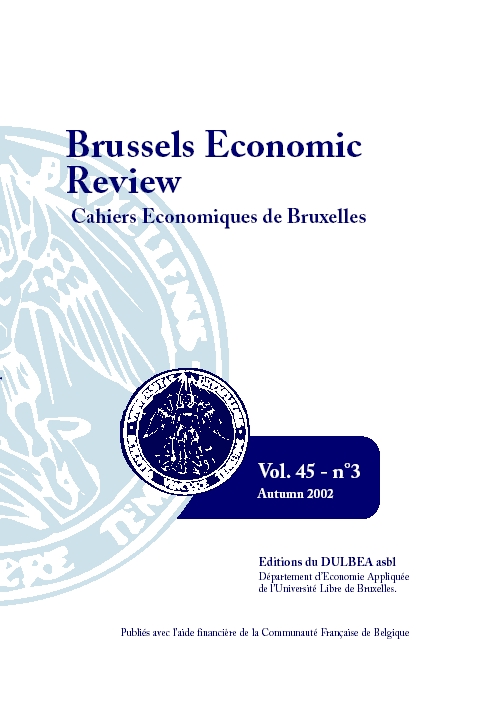
2013-01-01
Rycx, F. and Rusinek, M.
British Journal of Industrial Relations, 51(3), pp. 28-58 (2013).
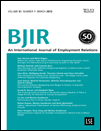
2013-01-01
Rycx, F. and Kampelmann, S.
Socio-Economic Review, 11(1), pp. 131-157. (2013)

2012-06-01
Du Caju, P., Rycx, F. and Tojerow, I.
Review of World Economics, 48(2), pp. 297-331 (2012).
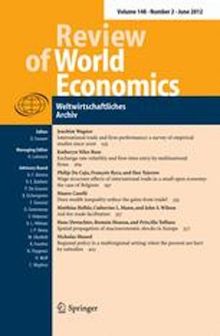
2012-05-01
Giuliano, R., Mahy, B. and Rycx, F.
Reflets et Perspectives de la vie économique, 51(3), pp. 85-95 (2012).
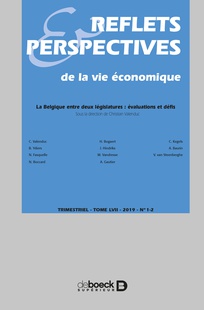
2012-04-01
Rycx, F. and Kampelmann, S.
De Economist, 160(3), pp. 257-287 (2012).
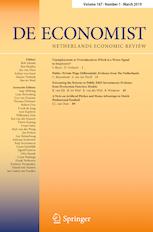
2012-01-01
Rycx, F., Citoni, G. and Mahy, B. (eds)
International Journal of Manpower, special issue, 33(3), pp. 224-339 (2012).

2012-01-01
Rycx, F. and Kampelmann, S.
Economics of Education Review, 31(6), pp. 918-931 (2012).
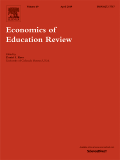
2012-01-01
Rycx, F., Cataldi, A. and Kampelmann, S.
International Journal of Manpower, 33(3), pp. 264-283 (2011).
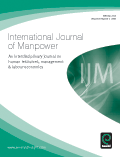
2012-01-01
Rycx, F. and Bernhard, M.
Applied Economics, 44(2), pp. 229-251 (2011).
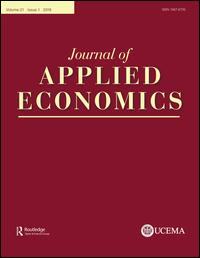
2011-10-01
Kampelmann, S. and Rycx, F.
Reflets et Perspectives de la vie économique, 50(4), pp. 119-131 (2011).
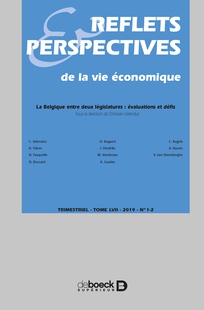
2011-06-21
Du Caju, P., Rycx, F. and Tojerow, I.
The Manchester School, 79(4), pp. 691-717 (2011).

2011-01-01
Rycx, F., Magda, I. Tojerow, I. and Valsamis, D.
The Economics of Transition, 19(4), pp. 749-769 (2011).

2011-01-01
Rycx, François; Mahy, Benoît & Voiral, Mélanie (2011)
British Journal of Industrial Relations, 49(3), 460-485.
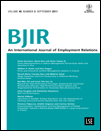
2011-01-01
Rycx, F., Cataldi, A. and Kampelmann, S.
De Economist, special issue on Workforce Aging, 159(2), pp. 193-221 (2011).
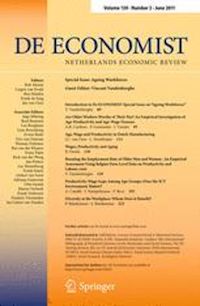
2011-01-01
Rycx, François; Mahy, Benoît & Volral, Mélanie (2011)
Scottish Journal of Political Economy, 58(4), 455-489.
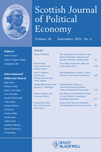
2010-01-01
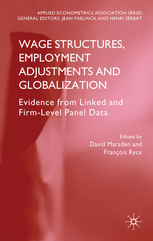
2009-01-01
Rycx, François & Lallemand, Thierry (2009)
De Economist, 157(3), 273-292.
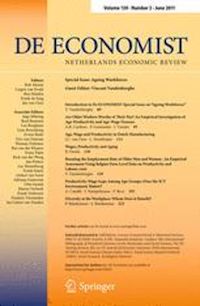
2008-06-01
Tojerow, Ilan (2008)
Reflets et Perspectives de la vie économique , 47(3), 55-65.
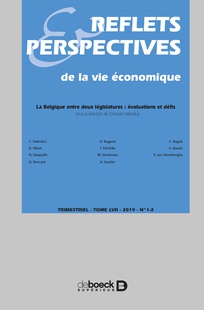
2008-05-01
Mahy, Benoît; Rycx, François; Volral, Mélanie (2008)
Reflets et Perspectives de la vie économique, 47(3), 27-40
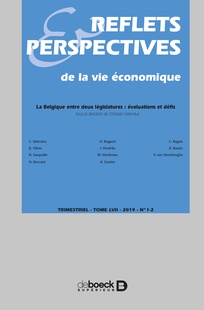
2008-05-01
Rusinek, Michael & Rycx, François (2008)
Reflets et Perspectives de la vie économique, 47(3), 101-114
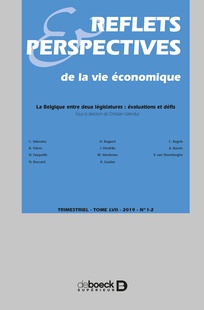
2008-02-01
Rycx, François; Lallemand, Thierry & Plasman, Robert (2008)
Journal of Sports Economics, 9(1), 3-19.
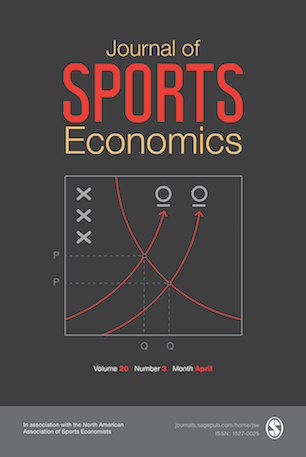
2008-01-01
in Rycx, François; Garofalo, Antonio & Concetto Paolo Vinci (eds) (2008)
International Journal of Manpower, special issue, 29(3), 192-298.
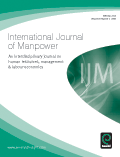
2007-12-01
Rycx, François; Lallemand, Thierry & Plasman, Robert (2007)
Empirica, 34(5), 427-451.
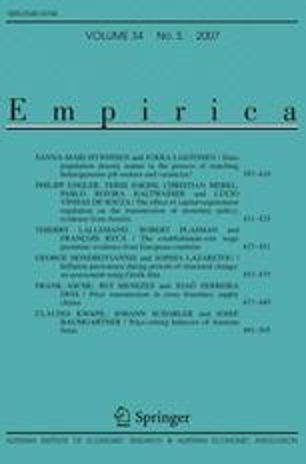
2007-05-01
Plasman, Robert; Rusinek, Michael & Tojerow, Ilan (2007)
Reflets et Perspectives de la vie économique, 56(2/3), 65-74.
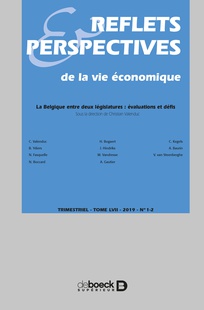
2007-03-01
Rycx, François & Tojerow, Ilan (2007)
Reflets et Perspectives de la vie économique, 56(2/3), 13-22
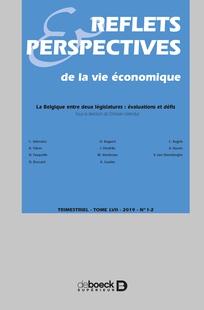
2007-03-01
Lallemand, Thierry & Rycx, François (2007)
Reflets et Perspectives de la vie économique, 46(2/3), 75-87
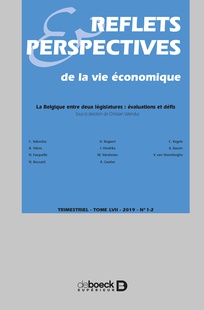
2007-01-01
Rycx, François; Mahy, Benoît & Plasman, Robert (2007)
Reflets & Perspectives de la vie économique, double special issue, 28(7), 532-650.
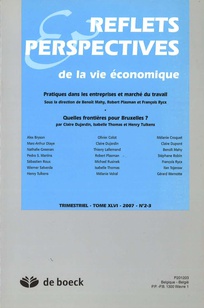
2007-01-01
Rycx, François; Altavilla, Carlo & Mahy, Benoît (eds) (2007)
International Journal of Manpower, special issue, 28(7), 532-650.
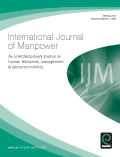
2007-01-01
Gannon, Brenda; Plasman, Robert; Rycx, François & Tojerow, Ilan (2007)
The Economic and Social Review, 38(1), 135-155.
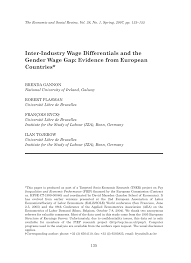
2007-01-01
Plasman, Robert; Rycx, François & Tojerow, Ilan (2007)
Brussels Economic Review , 50(1), 11-38.
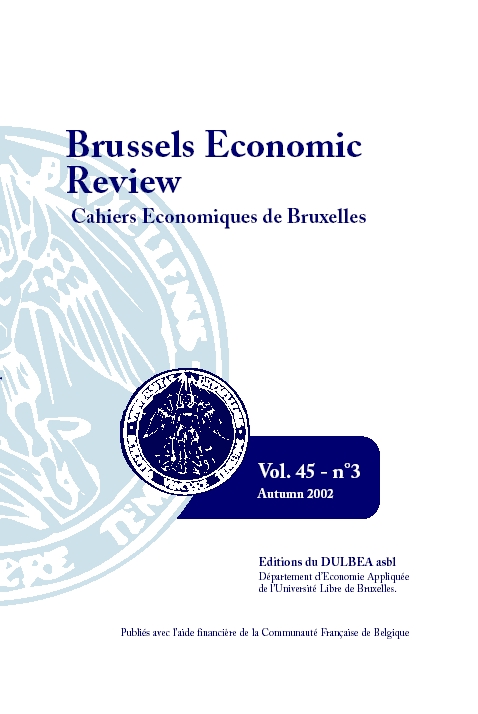
2006-01-01
in Rycx, François; Mahy, Benoît & Plasman, Robert (2006)
Palgrave Macmillan, 2006, 224 p.
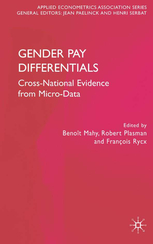
2005-01-01
Rycx, François; Mahy, Benoît & Plasman, Robert (eds) (2005)
Reflets & Perspectives de la vie économique, XLIII(2), 3-107.
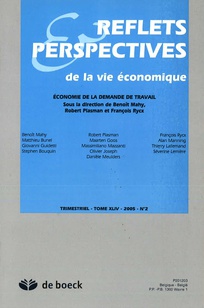
2005-01-01
Rycx, François; Mahy, Benoît & Plasman, Robert (2005)
International Journal of Manpower, double special issue, 26(7/8), 611-749.
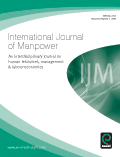
2004-01-01
in Rycx, François; Meulders, Danièle & Plasman, Robert (Eds) (2004)
Palgrave Macmillan, 2004, 248 p.
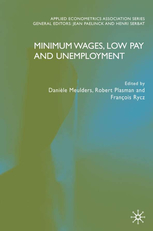
2004-01-01
Rycx, François & Tojerow, Ilan (2004)
International Journal of Manpower, 25(3-4), 279-299.
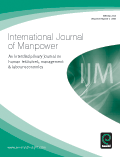
2004-01-01
Rycx, François; Meulders, Daniièle & Plasman, Robert (2004)
International Journal of Manpower, double special issue, 25(3-4), 239-377.
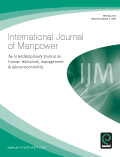
2003-01-01
Rycx, François; Meulders, Danièle & Plasman, Robert (2003)
International Journal of Manpower, 24(4), 323-491.
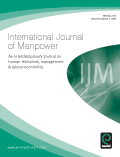
2002-05-01
Rycx, François & Tojerow, Ilan (2002)
Brussels Economic Review, 45(2), 119-141.
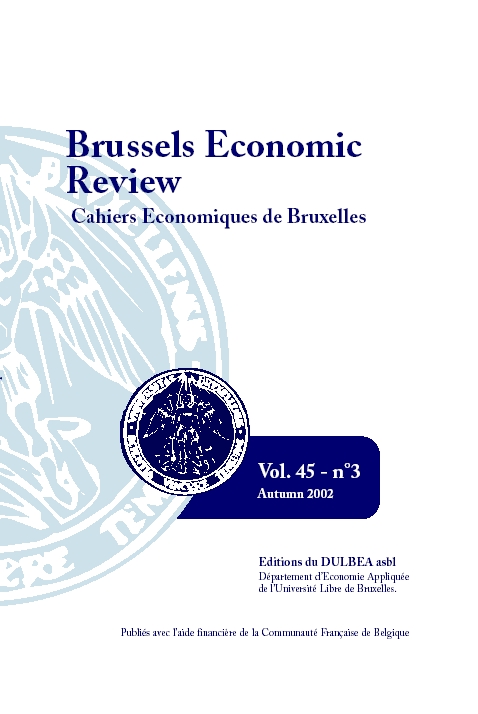
2002-01-01
Rycx, François; Meulders, Danièle & Plasman, Robert (2002)
Brussels Economic Review, special issue, 45(2), 2-246.
